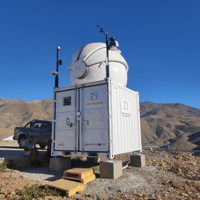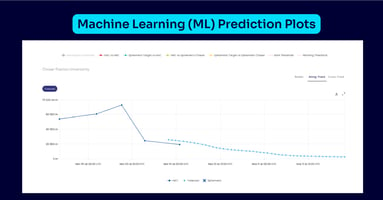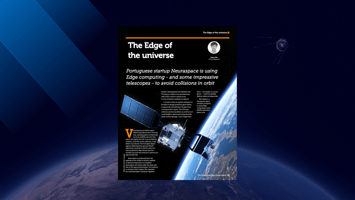To give our community an inside look into the installation of Neuraspace's new telescope in Chile,...
Neuraspace installs its second optical telescope in Chile for global satellite tracking coverage

We have installed and activated our second optical telescope, located in Chile, to expand satellite tracking coverage over the southern hemisphere. This complements our existing telescope installed at the Beja air base in Portugal, enabling satellite tracking coverage over both hemispheres through our own telescopes, in addition to data from partner networks.
Capable of acquiring more than one image per second for low orbits and tracking objects as small as 10 cm in diameter, our telescopes rank among the world’s most advanced for astrometric and photometric data acquisition in low Earth orbit (LEO). This precision reduces the uncertainty level for positional errors to less than 100 meters within a single orbital revolution, meeting the 2023 ESA Space Debris Mitigation Requirement.
Both telescopes also support agile horizon-to-horizon multi-orbit tracking, allowing rapid target switching. They produce measurements ranging from a few seconds to tens of minutes, enabling scalable data acquisition for multiple purposes such as collision avoidance, debris tracking, pattern-of-life analysis, and Launch and Early Orbit Phase (LEOP), among others.
Due to its location in a region with a high number of clear nights per year, the telescope in Chile is expected to be even more productive than the one in Beja. The Beja telescope has already produced more than 300,000 measurements of space objects in orbits from LEO to GEO within the first three months of operations.
This latest addition strenghthens the satellite tracking and analysis capabilities of our Space Traffic Management Platform, which integrates artificial intelligence (AI) and machine learning (ML) for advanced data analysis. Through this platform, we already provide services such as conjunction monitoring and collision avoidance to over 400 satellites. The new telescope will improve the timeliness and accuracy of these services, enabling safer and more efficient spacecraft operations.
The objective of this investment, funded by the Recovery and Resilience Plan (PRR) with a total budget of 25 million euros, is to enhance the safety and sustainability of airspace by providing complementary services to all companies operating in space. As part of this effort, the AI Fights Space Debris project (C626449889-00463050) is included in the Mobilising Agenda/Alliances for Reindustrialisation, further supporting advancements in safe space operations and sustainability.
Chiara Manfletti, CEO of Neuraspace, said: “This investment consolidates Neuraspace as a global leader in space traffic management. We already excel at creating value from data with AI. Now we're also getting the best possible data with our strategy of fusing data from different sources with our own. With this expansion of our infrastructure, we are redefining the standards of safety and efficiency in space operations worldwide."
These telescopes are also part of the AI Fights Space Debris project, a consortium led by Neuraspace and collaboration with Instituto Pedro Nunes, GMVIS Skysoft, University of Coimbra, Instituto Superior Técnico, and Nova University of Lisbon.



